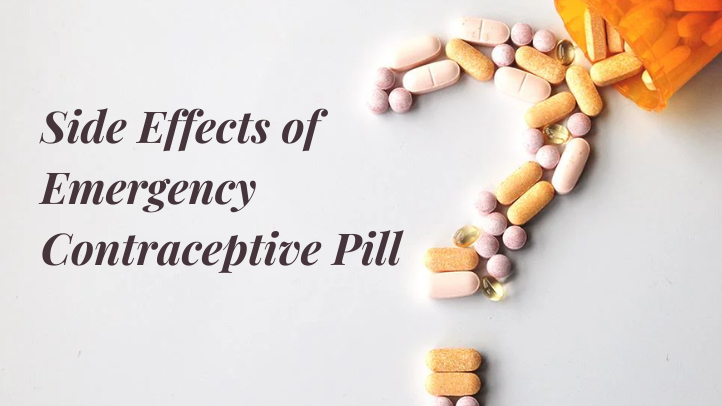Emergency contraceptive pills (ECPs) are an important backup after unprotected sex, but they are not 100% effective. Below are the most common reasons ECPs can fail and what to do to reduce the chance of failure.
Common Reasons ECPs Fail
- Taken too late or after ovulation: Levonorgestrel (LNG) pills work best when taken as soon as possible and are recommended within 72 hours; effectiveness declines over time. Ulipristal acetate (UPA) works up to 120 hours and is more effective later in that window. If ovulation has already occurred, pills are much less likely to prevent pregnancy.
- Body weight / BMI: Higher body weight or BMI can reduce the effectiveness of LNG. UPA is less affected but may also be impacted. The copper IUD is unaffected by weight.
- Vomiting or poor absorption: If you vomit within about 2 hours of taking a pill the medicine may not have been absorbed—this reduces effectiveness.
- Drug interactions: Certain medicines (enzyme inducers like some anticonvulsants, rifampicin-like antibiotics, some HIV drugs, herbal remedies such as St John’s wort) can lower ECP blood levels and reduce effectiveness.
- Pregnancy already established: ECPs prevent or delay ovulation and make fertilisation less likely — they do not terminate an implanted pregnancy. If implantation has already occurred, ECPs cannot “work.”
- Incorrect product, dose, or poor quality pills: Using the wrong product, counterfeit or expired pills, or incorrect dosing reduces effectiveness
Practical Steps to Reduce Failure
- Take an ECP as soon as possible after unprotected sex — the sooner the better.
- Prefer UPA (ella) over if presenting between 72–120 hours after sex (UPA performs better later in that window).
- Consider a copper IUD for emergency contraception when available — it is the most effective option and also provides ongoing contraception.
- If you vomit within 2 hours of taking the pill, contact a clinician — you may need a repeat dose or an IUD.
- If you have a high BMI, discuss options with a clinician — offer UPA or a copper IUD rather than LNG when possible.
- Check current medications for possible interactions (anticonvulsants, rifampicin, some HIV drugs, herbal remedies). If you take enzyme-inducing drugs, a copper IUD is the safest option.
- Start reliable ongoing contraception after the emergency — implants, IUDs, or regular pills reduce future emergency needs.
- Take a pregnancy test if your next period is more than one week late or if you have pregnancy symptoms

Quick Myths & Facts
Myth: Emergency pills are the same as abortion pills.
Fact: ECPs prevent or delay ovulation and fertilisation; they do not terminate an implanted pregnancy.
Myth: ECPs work perfectly every time.
Fact: ECPs reduce the risk of pregnancy but are not 100% effective — timing, weight, vomiting, and interactions can lower effectiveness
When to Seek Clinical Help
Contact a clinician if:
- You vomit within 2 hours of taking the pill.
- Your period is more than one week late after taking ECPs.
- You have symptoms of pregnancy (missed period, breast changes, nausea)
- You take medications that might interact with emergency contraception.
Women for Women Kenya — Need Help or Advice?
We offer confidential counselling on emergency contraception and ongoing options to prevent future emergencies.
Contact:
📞 Call/Text: 0700 811 52
🌐 Website: www.womenforwomenkenya.com
📧 Email: kenyawomenforwomen@gmail.com
Note: This information is general guidance. For personalised clinical advice, consult a qualified healthcare provider




